2024
 Like Children Black Prodigy and the Measure of the Human in America
Like Children Black Prodigy and the Measure of the Human in America
(NYU Press)
Camille Owens
In Like Children, Camille Owens argues that the child has been the key figure giving measure and meaning to the human in thought and culture since the early American period. Showing how Americans sharpened the child into a powerful white supremacist weapon, Owens nevertheless troubles the notion that either the child or the human have been figures of unadulterated whiteness or stable boundaries. The recurring fascination of white Americans for Black children to perform as prodigies—exceptions to the rules of childhood—indicates how childhood’s social and cultural capital was not only bound up in the marking of racial boundaries but also in their crossing.
Like Children recenters the history of American childhood around Black children and rewrites the story of the human through their acts. Camille Owens argues that white men’s power at the top of humanism’s order has depended on those at the bottom. It was childhood’s modern arc—from ignorance and dependence to reason and rights—that structured white men’s power in early America: by claiming that Black adults were like children, whites naturalized Black subjection within the American family order. Like Children locates the creative strategies of Black children suspended outside of this order.
Through the stories of Black and disabled children spectacularized as prodigies, Owens tracks enduring white investment in Black children’s power and value, and a pattern of Black children performing beyond white containment. She reconstructs the extraordinary interventions and inventions of figures such as the early American poet, Phillis Wheatley; the nineteenth-century pianist, Tom Wiggins (Blind Tom); a child known as “Bright” Oscar Moore at the end of the nineteenth century; and the early-twentieth century “Harlem Prodigy,” Philippa Schuyler; situating each against the racial, gendered, and developmental rubrics by which they were designated prodigious exceptions. At the same time, she excavates prodigy’s premodern meaning—monstrous birth—as it has underwritten and overdetermined Black childhood, while questioning the idea of monstrosity as a human-exclusionary concept.
Like Children displaces frames of exclusion and dehumanization to explain Black children’s historical and present predicament, revealing the immense cultural significance that Black children have negotiated and what they have done to reshape the Human in their own acts.
"Luminous and thought-provoking, beautifully written and meticulously researched. Through skillfully navigating the historical trajectory of black child prodigies, Owens sheds light on their often-overlooked struggles and illuminates the profound gap between the idealized notion of prodigy and the harsh realities they faced. The depth of the scholarship is breathtaking, making Like Children a compelling work that is poised to make a dramatic intervention." — Amber Musser, CUNY Graduate Center
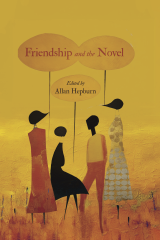 Friendship and the Novel
Friendship and the Novel
(McGill-Queen's University Press)
Ed. Allan Hepburn
Friends are at the centre of novels by everyone from George Eliot to Elena Ferrante. It is nearly impossible to name a work of fiction that is not enriched by the tensions and magnetisms of friendship.
Friendship and the Novel focuses on the affective and narrative possibilities created by friendship in fiction. Friendship enables plots about rivalry, education, compassion, pity, deceit, betrayal, animosity, and breakup. It crosses boundaries of gender, class, nationality, disposition, race, age, and experience. Some novels offer lessons about distinguishing good friends from bad. In a Bildungsroman, friends contribute to the development of the protagonist through example or advice, as if novels were manuals for making and keeping friends. Sometimes sparks fly between friends and friendship swerves into sexual intimacy. Sally Rooney and other contemporary writers take friendship online.
The essays in Friendship and the Novel illustrate how friendship, in its many forms - short or lifelong, intense or circumstantial - is a central problem and an abiding mystery in fiction as in life, a subject that continues to shape the novel as a literary form and, in turn, its readers.
“Friendship and the Novel is not just a pleasure to read; it is a well-argued and engagingly written book that opens up new insights into a variety of authors. Its cumulative effect is to demonstrate that friendship and the novel is such an important, indeed inevitable, topic that it leaves one surprised such a book did not already exist.” — J. Russell Perkin, Saint Mary’s University and author of Politics and the British Novel in the 1970s
Contributors include Robert L. Caserio (Penn State), Maria DiBattista (Princeton), Jay Dickson (Reed), Brian Gingrich (Texas), Jonathan Greenberg (Montclair State), Barry McCrea (Notre Dame), Deborah Epstein Nord (Princeton), Erwin Rosinberg (Emory), Jacqueline Shin (Towson), Lisa Sternlieb (Penn State), and Emily Wittman (Alabama).
2023
 Writing Backwards: Historical Fiction and the Reshaping of the American Canon
Writing Backwards: Historical Fiction and the Reshaping of the American Canon
(Columbia University Press)
Alexander Manshel
Contemporary fiction has never been less contemporary. Writing Backwards documents how the historical novel took over American literature, and how the push to recover lost or overlooked histories has affected writers of color most of all.
Alexander Manshel investigates the most celebrated historical genres—contemporary narratives of slavery, the World War II novel, the multigenerational family saga, immigrant fiction, and the novel of recent history—alongside the literary and academic institutions that have elevated them. He examines the work of Toni Morrison, Viet Thanh Nguyen, Colson Whitehead, Julia Alvarez, Leslie Marmon Silko, Michael Chabon, Julie Otsuka, Yaa Gyasi, Ben Lerner, and Tommy Orange in the context of MFA programs, literary prizes, university syllabi, book clubs, and the National Endowment for the Arts. Even as the literary canon has become more diverse, these cultural institutions have celebrated Black, Asian American, Latinx, and Indigenous novelists almost exclusively for their historical fiction. Writing Backwards uncovers how the newly inclusive literary canon came to exist, as well as who and what it still excludes.
Writing Backwards offers us a surprising new history of the contemporary novel that no future critic will be able to ignore. Alexander Manshel’s book reads like a detective story, but the stakes of the mystery are very high. He explains how, when the literary canon has itself receded for many into a more remote past, history has come flooding back into serious fiction, especially fiction by minoritized writers. In a series of intricate readings, Manshel demonstrates that history is not done with the novel. — John Guillory, author of Professing Criticism: Essays on the Organization of Literary Study
Alexander Manshel's Writing Backwards is essential reading for students and scholars of contemporary American literary studies. His insights into how institutions and market appetites establish "literary" value are provocative and profound. This book has changed how I think about the relationship between history and the critical acclaim accorded American novels. — Stephanie Li, author of Pan-African American Literature: Signifyin(g) Immigrants in the Twenty-First Century
 Do You Want to Be Happy and Write?: Critical Essays on Michael Ondaatje
Do You Want to Be Happy and Write?: Critical Essays on Michael Ondaatje
(McGill-Queen's University Press)
Ed. Robert Lecker
Taking its title from a question in his poem “Tin Roof,” Do You Want to Be Happy and Write? reassesses Ondaatje’s writing and the role of the poet, from his troubled explorations of the self-reflexive artist to his most recent novels. Comprehensive in both approach and coverage, this new collection offers groundbreaking analysis informed by an understanding of Ondaatje’s entire oeuvre, placing early poetry collections like The Collected Works of Billy the Kid and There’s a Trick with a Knife I’m Learning to Do alongside the full range of his novels and his extensive work as a literary editor. The book highlights the transnational, postcolonial, and diasporic issues that have become increasingly apparent in Ondaatje’s work. Contributors explore key interests that have reappeared and been rethought across his fiction and poetry: the construction of identity; the nature of memory and its relation to family origins and history; the human body as a site of contestation and struggle; the contrast between Eastern and Western values and the Southeast Asian diaspora; the writer’s responsibility in depictions of war, psychic trauma, and genocide; and an ongoing fascination with the visual and the media of photography and film.
An eclectic celebration of an iconic author, Do You Want to Be Happy and Write? offers an authoritative reference point for scholars and students of literature and reveals new facets of a major author to his readers around the world.
 Canadian Literary Fare
Canadian Literary Fare
(McGill-Queen's University Press)
Nathalie Cooke and Shelley Boyd
with Alexia Moyer
When writers place food in front of their characters - who after all do not need sustenance - they are asking readers to be alert to the meaning and implication of food choices. As readers begin to listen closely to these cues, they become attuned to increasingly layered stories about why it matters what foods are selected, prepared, served, or shared, and with whom, where, and when.
In Canadian Literary Fare Nathalie Cooke and Shelley Boyd explore food voices in a wide range of Canadian fiction, drama, and poetry, drawing from their formational blog series with Alexia Moyer. Thirteen short vignettes delve into metaphorical taste sensations, telling of how single ingredients such as garlic or ginger, or food items such as butter tarts or bannock, can pack a hefty symbolic punch in literary contexts. A chapter on Canada’s public markets finds literary food voices sounding a largely positive note, just as Canadian journalists trumpet Canada’s bountiful and diverse foodways. But in chapters on literary representations of bison and Kraft Dinner, Cooke and Boyd bear witness to narratives of hunger, food scarcity, and social inequality with poignancy and insistence.
Canadian Literary Fare pays heed to food voices in the works of Tomson Highway, Rabindranath Maharaj, Alice Munro, M. NourbeSe Philip, Eden Robinson, Fred Wah, and more, inviting readers to listen for stories of foodways in the literatures of Canada and beyond.
2022
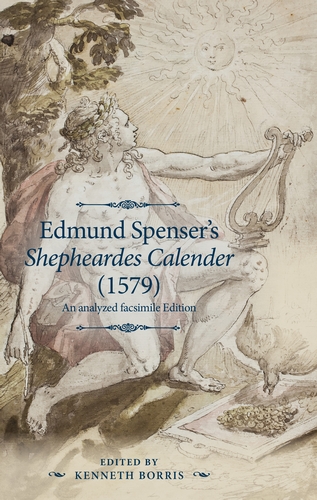 Edmund Spenser’s “Shepheardes Calender” (1579): An Analyzed Facsimile Edition
Edmund Spenser’s “Shepheardes Calender” (1579): An Analyzed Facsimile Edition
(Manchester University Press)
Ed. Kenneth Borris
Spenser's extraordinary Shepheardes Calender as first printed in 1579 is arguably the seminal book of the Elizabethan literary renaissance. This volume reassesses it as a material text in relation to book history, and provides the first clearly detailed facsimile of the 1579 Calender available as a book. The editor reconsiders the original book's development, production, design, and particular characteristics, and demonstrates both its correlations with diverse precursors in print and its significant departures. Numerous illustrations of archival sources facilitate comparison. By reinvestigating the 1579 Calender's twelve pictures, he shows that Spenser himself probably designed them, that they involve complex symbolism, and that this book's meaning is thus profoundly verbal-visual. An analyzed facsimile is an essential new resource for study of Spenser's Calender, Spenser, Elizabethan print and poetics, and early modern English literary history.
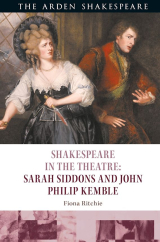 Shakespeare in the Theatre: Sarah Siddons and John Philip Kemble
Shakespeare in the Theatre: Sarah Siddons and John Philip Kemble
(Bloomsbury Publishing)
Fiona Ritchie
Siblings Sarah Siddons (1755–1831) and John Philip Kemble (1757–1823) were the most famous British actors of the late-18th and early-19th centuries. Through their powerful acting and meticulous conceptualisation of Shakespeare's characters and their worlds, they created iconic interpretations of Shakespeare's major roles that live on in our theatrical and cultural memory. This book examines the actors' long careers on the London stage, from Siddons's debut in 1782 to Kemble's retirement in 1817, encompassing Kemble's time as theatre manager, when he sought to foreground their strengths as Shakespearean performers in his productions.
Over the course of more than thirty years, Siddons and Kemble appeared opposite one another in many Shakespeare plays, including King John, Henry VIII, Coriolanus and Macbeth. The actors had to negotiate two major Shakespeare scandals: the staging of Vortigern – a fake Shakespearean play – in 1796 and the Old Price Riots of 1809, during which the audience challenged Siddons's and Kemble's perceived attempts to control Shakespeare.
Fiona Ritchie examines the siblings' careers, focusing on their collaborations, as well as placing Siddons's and Kemble's Shakespeare performances in the context of contemporary 18th- and 19th-century drama. The volume not only offers a detailed consideration of London theatre, but also explores the importance of provincial performance to the actors, notably in the case of Hamlet – a role in which both appeared across Britain and in Ireland.
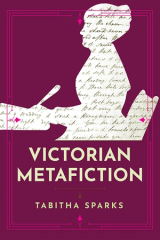 Victorian Metafiction
Victorian Metafiction
(University of Virginia Press)
Tabitha Sparks
Critics agree in the abstract that "metafiction" refers to any novel that draws attention to its own fictional construction, but metafiction has been largely associated with the postmodern era. In this innovative new book Tabitha Sparks identifies a sustained pattern of metafiction in the Victorian novel that illuminates the art and intentions of its female practitioners.
From the mid-nineteenth century through the fin de siècle, novels by Victorian women such as Charlotte Brontë, Rhoda Broughton, Charlotte Riddell, Eliza Lynn Linton, and several New Women authors share a common but underexamined trope: the fictional characterization of the woman novelist or autobiographer. Victorian Metafiction reveals how these novels systemically dispute the assumptions that women wrote primarily about their emotions or were restricted to trivial, sentimental plots.
Countering an established tradition that has read novels by women writers as heavily autobiographical and confessional, Sparks identifies the literary technique of metafiction in numerous novels by women writers and argues that women used metafictional self-consciousness to draw the reader’s attention to the book and not the novelist. By dislodging the narrative from these cultural prescriptions, Victorian Metafiction effectively argues how these women novelists presented the business and art of writing as the subject of the novel and wrote metafiction in order to establish their artistic integrity and professional authority.
2021
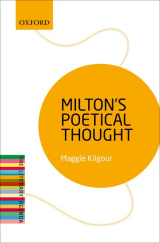 Milton’s Poetical Thought
Milton’s Poetical Thought
(Oxford University Press)
Maggie Kilgour
A defence of the importance of poetry that studies one of the greatest poets of the English tradition: John Milton.
The Literary Agenda is a series of short polemical monographs about the importance of literature and of reading in the wider world and about the state of literary education inside schools and universities. The category of 'the literary' has always been contentious. What is clear, however, is how increasingly it is dismissed or is unrecognised as a way of thinking or an arena for thought. It is sceptically challenged from within, for example, by the sometimes rival claims of cultural history, contextualized explanation, or media studies. It is shaken from without by even greater pressures: by economic exigency and the severe social attitudes that can follow from it; by technological change that may leave the traditional forms of serious human communication looking merely antiquated. For just these reasons this is the right time for renewal, to start reinvigorated work into the meaning and value of literary reading.
Why would anyone read John Milton today? To many, poetry in general is an irrelevant and even irresponsible luxury that we cannot afford in a time of environmental and social crisis. The work of a seventeenth-century 'Puritan' might seem especially obscure and out of touch with our needs. But this book argues that Milton offers us one of the most powerful arguments for the importance of poetry today, both representing in his poetry and demonstrating through his own life, the transformative and sustaining force of the human imagination even in times of greatest upheaval. Writing out of his own experience of loss and disappointment, he insists that poetry is a form of knowledge, a way of seeing and understanding the world around us, others, and indeed ourselves. He uses the resources of poetry—its language, imagery, and forms—to challenge and shake us up, making us think in unfamiliar ways and expanding our imagination and our sense of the possibilities in our lives. Milton insists that poetry gives us knowledge of truths we otherwise would never apprehend; it enriches the experience of both writers and readers and makes us creative and fully realized human beings.
2020
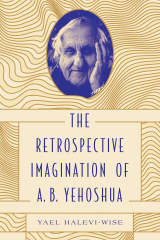 The Retrospective Imagination of A. B. Yehoshua
The Retrospective Imagination of A. B. Yehoshua
Yael Halevi-Wise
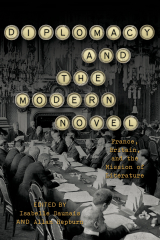 Diplomacy and the Modern Novel: France, Britain, and the Mission of Literature
Diplomacy and the Modern Novel: France, Britain, and the Mission of Literature
Allan Hepburn and Isabelle Daunais, eds.
 Who Was Doris Hedges? The Search for Canada's First Literary Agent
Who Was Doris Hedges? The Search for Canada's First Literary Agent
Robert Lecker
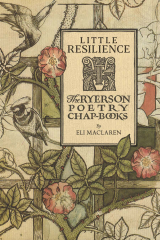
Little Resilience: The Ryerson Poetry Chap-Books
Eli MacLaren
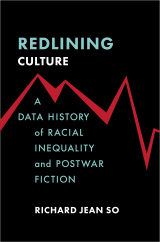 Redlining Culture: A Data History of Racial Inequality and Postwar Fiction
Redlining Culture: A Data History of Racial Inequality and Postwar Fiction
Richard Jean So
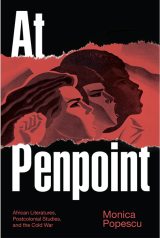 At Penpoint: African Literatures, Postcolonial Studies, and the Cold War
At Penpoint: African Literatures, Postcolonial Studies, and the Cold War
Monica Popescu
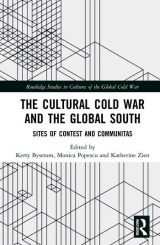 The Cultural Cold War and the Global South: Sites of Contest and Communitas
The Cultural Cold War and the Global South: Sites of Contest and Communitas
Kerry Bystrom, Monica Popescu and Katherine Zien, eds.
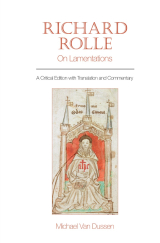 Richard Rolle: On Lamentations. A Critical Edition with Translation and Commentary
Richard Rolle: On Lamentations. A Critical Edition with Translation and Commentary
Michael Van Dussen
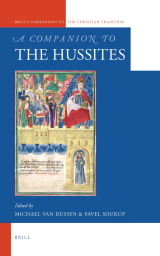 A Companion to the Hussites
A Companion to the Hussites
Michael Van Dussen and Pavel Soukup, eds.
2019
 Space, Utopia and Indian Decolonization: Literary Pre-Figurations of the Postcolony
Space, Utopia and Indian Decolonization: Literary Pre-Figurations of the Postcolony
Sandeep Banerjee
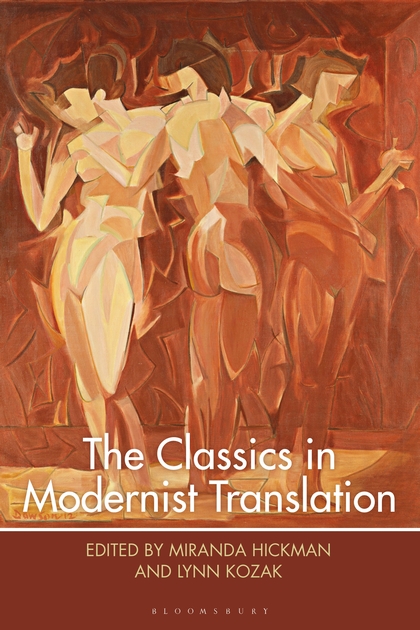 The Classics in Modernist Translation
The Classics in Modernist Translation
Lynn Kozak and Miranda Hickman, eds.
2018
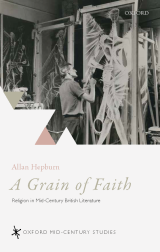 A Grain of Faith: Religion in Mid-Century British Literature
A Grain of Faith: Religion in Mid-Century British Literature
Allan Hepburn
 The Additional Journals and Letters of Frances Burney
The Additional Journals and Letters of Frances Burney
Peter Sabor
2017
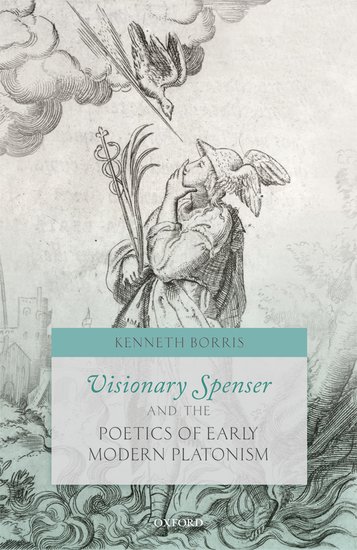 Visionary Spenser and the Poetics of Early Modern Platonism
Visionary Spenser and the Poetics of Early Modern Platonism
Kenneth Borris
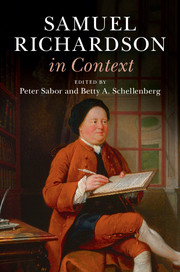 Samuel Richardson in Context
Samuel Richardson in Context
Peter Sabor and Betty A. Schellenberg, eds.
 A City Girl: A Realistic Story (1887)
A City Girl: A Realistic Story (1887)
Tabitha Sparks, ed.
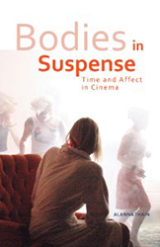 Bodies in Time: Suspense, Affect, Cinema
Bodies in Time: Suspense, Affect, Cinema
Alanna Thain
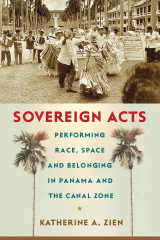 Sovereign Acts: Performing Race, Space, and Belonging in Panama and the Canal Zone
Sovereign Acts: Performing Race, Space, and Belonging in Panama and the Canal Zone
Katherine Zien
2016
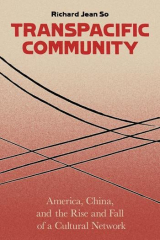 Transpacific Community America, China, and the Rise and Fall of a Cultural Network
Transpacific Community America, China, and the Rise and Fall of a Cultural Network
Richard Jean So
 Europe After Wyclif
Europe After Wyclif
Michael van Dussen and J. Patrick Hornbeck II, eds.
2015
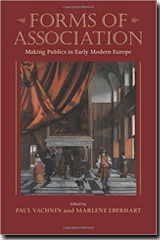 Forms of Association
Forms of Association
Making Publics in Early Modern Europe
Paul Yachnin & Marlene Eberhart, eds.
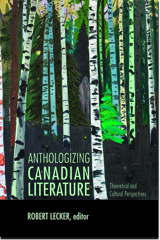 Anthologizing Canadian Literature:
Anthologizing Canadian Literature:
Theoretical and Cultural Perspectives
Robert Lecker, ed.
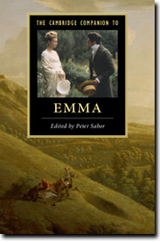 The Cambridge Companion to ‘Emma'
The Cambridge Companion to ‘Emma'
Peter Sabor, ed.
 The Johnson Family Treasury:
The Johnson Family Treasury:
A Collection of Household Recipes & Remedies, 1741-1848
Nathalie Cooke & Kathryn Harvey, eds.
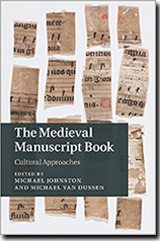 The Medieval Manuscript Book: Cultural Approaches
The Medieval Manuscript Book: Cultural Approaches
Michael Johnston & Michael Van Dussen, eds.
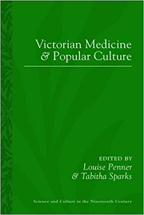 Victorian Medicine and Popular Culture
Victorian Medicine and Popular Culture
Louise Penner and Tabitha Sparks, eds.
2014
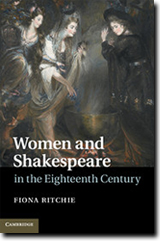 Women and Shakespeare in the Eighteenth Century
Women and Shakespeare in the Eighteenth Century
Fiona Ritchie
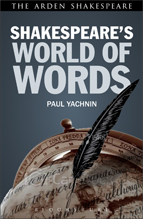 Shakespeare’s World of Words
Shakespeare’s World of Words
Paul Edward Yachnin, ed.
2013
 The Politics and Poetics of Contemporary English Tragedy
The Politics and Poetics of Contemporary English Tragedy
Sean Carney
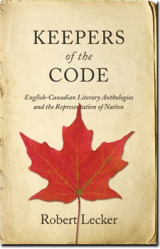 Keepers of the Code: English-Canadian Literary Anthologies and the Representation of the Nation
Keepers of the Code: English-Canadian Literary Anthologies and the Representation of the Nation
Robert Lecker
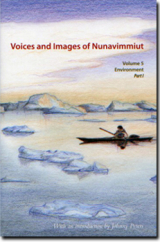 Voices and Images of Nunavimmiut
Voices and Images of Nunavimmiut
Volume 5 - Environment Part I
Minnie Grey, Peter Mittenthal, Marianne Stenbaek eds.
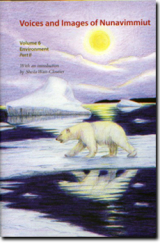 Voices and Images of Nunavimmiut
Voices and Images of Nunavimmiut
Volume 6 - Environment Part II
Minnie Grey, Peter Mittenthal, Marianne Stenbaek eds.
2012
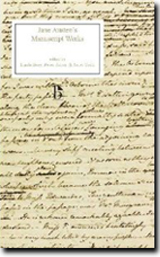 Jane Austen's Manuscript Works
Jane Austen's Manuscript Works
Linda Bree, Peter Sabor & Janet Todd, eds.
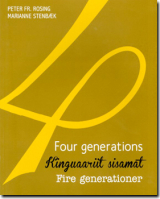 Four Generations/Kinguaariit Sisamat/Fire Generationer
Four Generations/Kinguaariit Sisamat/Fire Generationer
Marianne Stenbaek & Peter Fr. Rosing, eds.
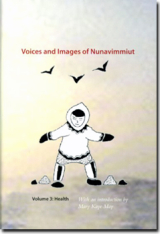 Voices and Images of Nunavimmiut, Volume 3: Health
Voices and Images of Nunavimmiut, Volume 3: Health
Marianne Stenbaek & Minnie Grey, eds.
A series of anthologies of writings by Nunavik Inuit. In English.
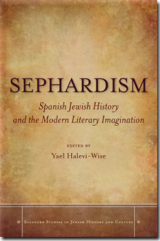 Sephardism: Spanish Jewish History and the Modern Literary Imagination
Sephardism: Spanish Jewish History and the Modern Literary Imagination
Yael Halevi-Wise
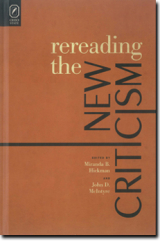 Rereading the New Criticism
Rereading the New Criticism
Miranda B. Hickman & John D. McIntyre, eds.
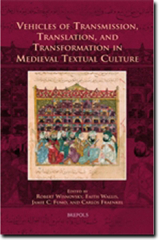 Vehicles of Transmission, Translation, and Transformation in Medieval Textual Culture
Vehicles of Transmission, Translation, and Transformation in Medieval Textual Culture
Robert Wisnovsky, Faith Wallis, Jamie Fumo & Carlos Fraenkel, eds.
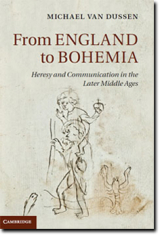 From England to Bohemia: Heresy and Communication in the Later Middle Ages
From England to Bohemia: Heresy and Communication in the Later Middle Ages
Michael Van Dussen
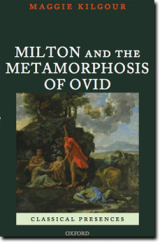 Milton and the Metamorphosis of Ovid
Milton and the Metamorphosis of Ovid
Maggie Kilgour
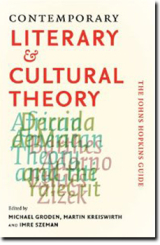 Contemporary Literary & Cultural Theory: The Johns Hopkins Guide
Contemporary Literary & Cultural Theory: The Johns Hopkins Guide
Michael Groden, Martin Kreiswirth & Imre Szeman, eds.
 Shakespeare in the Eighteenth Century
Shakespeare in the Eighteenth Century
Fiona Ritchie and Peter Sabor, eds.
2011
 Voices and Images of Nunavimmiut, Volume 2: Way of Life
Voices and Images of Nunavimmiut, Volume 2: Way of Life
Marianne A. Stenbaek & Minnie Grey, eds.
A series of anthologies of writings by Nunavik Inuit. In English.
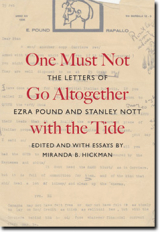 One Must Not Go Altogether with the Tide: The Letters of Ezra Pound and Stanley Nott
One Must Not Go Altogether with the Tide: The Letters of Ezra Pound and Stanley Nott
Miranda Hickman
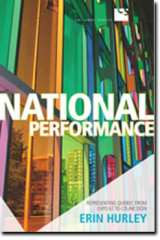 National Performance
National Performance
Erin Hurley
 The Court Journals and Letters of Frances Burney
The Court Journals and Letters of Frances Burney
Peter Sabor, ed.
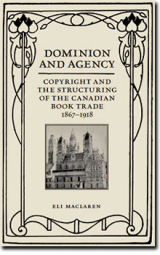 Dominion and Agency: Copyright and the Structuring of the Canadian Book Trade, 1867-1918
Dominion and Agency: Copyright and the Structuring of the Canadian Book Trade, 1867-1918
Eli MacLaren
 Richard II (Oxford World's Classics Edition)
Richard II (Oxford World's Classics Edition)
Paul Yachnin & Anthony Dawson, eds.
2010
 The Veins of the Heart to the Pinnacle of the Mind
The Veins of the Heart to the Pinnacle of the Mind
Aqqaluk Lynge; Ken Norris and Marianne Stenbaek, trans.
The poetry of Aqqaluk Lynge, the International Chair of the Inuit Circumpolar Council. In English and Greenlandic.
 Local Knowledge: Living Resources and Natural Assets in Greenland
Local Knowledge: Living Resources and Natural Assets in Greenland
H.C. Petersen; Marianne Stenbaek, ed.
Traditional knowledge on the environment, animals and culture collected by the Greenlander HC Petersen over 60 years. In English and Greenlandic.
 Voices and Images of Nunavimmiut, Volume 1: Stories and Tales
Voices and Images of Nunavimmiut, Volume 1: Stories and Tales
Marianne Stenbaek; Minnie Grey, eds.
A series of anthologies of writings by Nunavik Inuit. In English.
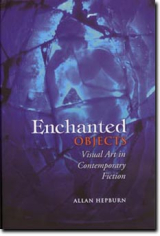 Enchanted Objects: Visual Art in Contemporary Fiction
Enchanted Objects: Visual Art in Contemporary Fiction
Allan Hepburn
 Listening In: Broadcasts, Speeches, and Interviews by Elizabeth Bowen
Listening In: Broadcasts, Speeches, and Interviews by Elizabeth Bowen
Allan Hepburn
 Urban Underworlds
Urban Underworlds
Thomas Heise
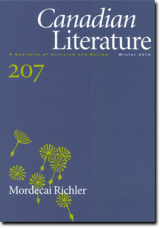 Canadian Literature 207: Mordecai Richler
Canadian Literature 207: Mordecai Richler
Nathalie Cooke, ed.
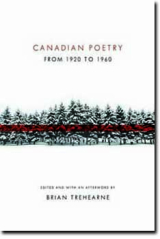 Canadian Poetry from 1920 to 1960
Canadian Poetry from 1920 to 1960
Brian Trehearne, ed.
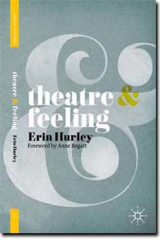 Theatre and Feeling
Theatre and Feeling
Erin Hurley
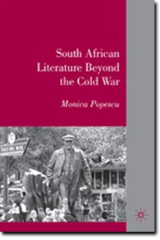 South African Literature Beyond the Cold War
South African Literature Beyond the Cold War
Monica Popescu
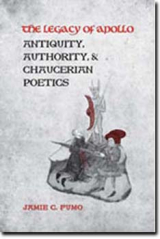 The Legacy of Apollo: Antiquity, Authority & Chaucerian Poetics
The Legacy of Apollo: Antiquity, Authority & Chaucerian Poetics
Jamie Fumo
2009
 Vikings of To-day
Vikings of To-day
Wilfred Grenfell; Marianne Stenbaek, intro.
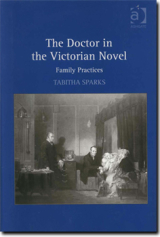 The Doctor in the Victorian Novel: Family Practices
The Doctor in the Victorian Novel: Family Practices
Tabitha Sparks
Hard Hats, Rednecks, and Macho Men: Class in 1970s American Cinema 
Derek Nystrom
 Shakespeare and Character
Shakespeare and Character
Paul Yachnin and Jessica Slights, eds.
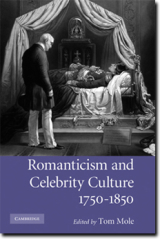 Romanticism and Celebrity Culture
Romanticism and Celebrity Culture
Tom Mole
 What's to Eat?:
What's to Eat?:
Nathalie Cooke
 Making Publics in Early Modern Europe
Making Publics in Early Modern Europe
Paul Yachnin and Bronwen Wilson, eds.
 Narrative Means, Lyric Ends: Temporality in the Nineteenth-Century British Long Poem
Narrative Means, Lyric Ends: Temporality in the Nineteenth-Century British Long Poem
Monique Morgan
2008
 Gossip, Letters, Phones: The Scandal of Female Networks in Film and Literature
Gossip, Letters, Phones: The Scandal of Female Networks in Film and Literature
Ned Schantz
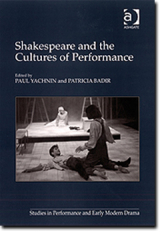 Shakespeare and the Cultures of Performance
Shakespeare and the Cultures of Performance
Paul Yachnin and Patricia Badir, eds.
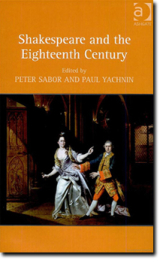 Shakespeare and the Eighteenth Century
Shakespeare and the Eighteenth Century
Peter Sabor and Paul Yachnin, eds.
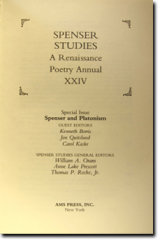 Spenser Studies XXIV
Spenser Studies XXIV
Ken Borris, ed.
2007
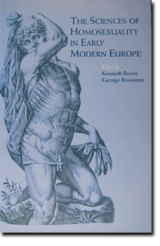 The Sciences of Homosexuality in Early Modern Europe
The Sciences of Homosexuality in Early Modern Europe
Ken Borris
 The Cambridge Companion to Frances Burney
The Cambridge Companion to Frances Burney
Peter Sabor, ed.
 Byron's Romantic Celebrity
Byron's Romantic Celebrity
Tom Mole
2006
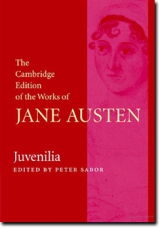 The Cambridge Edition of the Works of Jane Austen - Juvenilia
The Cambridge Edition of the Works of Jane Austen - Juvenilia
Peter Sabor, ed.